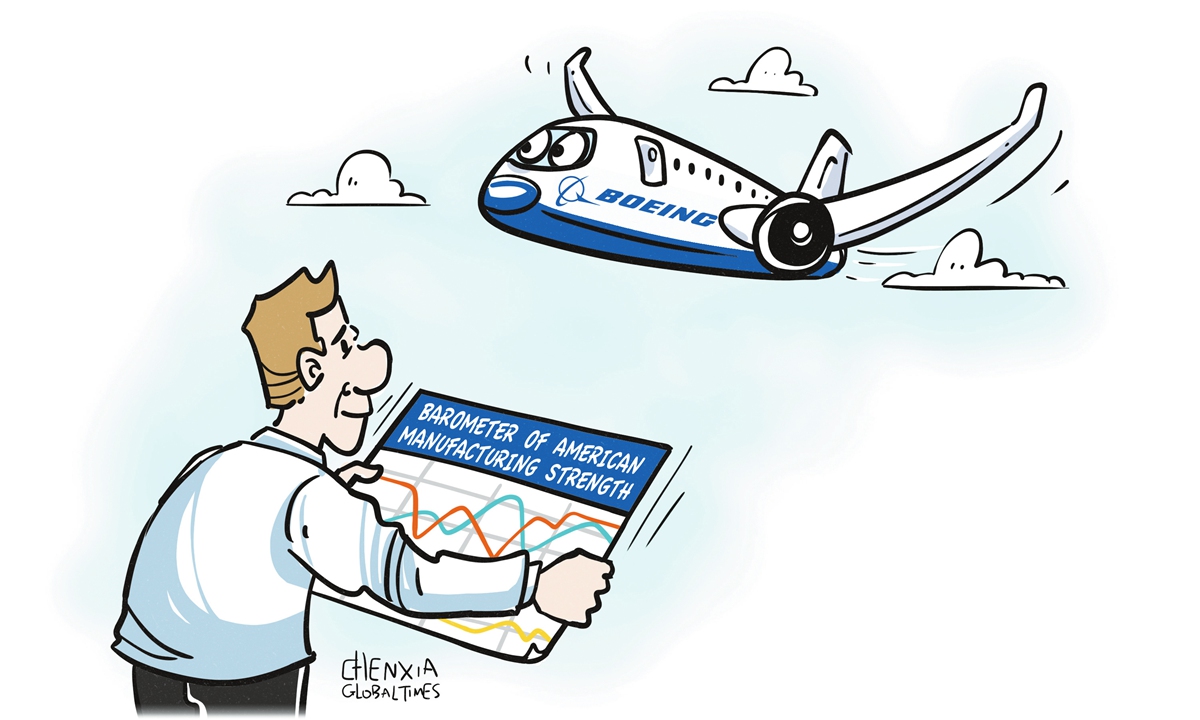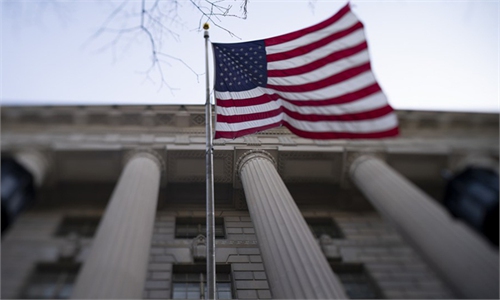
Illustration: Chen Xia/GT
Boeing's recent seven-week machinists' strike ended in a settlement, with workers winning a 38-percent wage increase over four years.
This convergence offers a telling moment to examine what drives American industrial strength; in recent years, Washington has continuously emphasized and strengthened reindustrialization. At the same time, Washington's extreme policies of trade wars, high tariff barriers and curbing chip exports to China are also clear.
This transformation cannot be solved through tariff walls or containment policies aimed at foreign competitors to raise US manufacturing. Boeing's struggles and successes have long been a barometer for American manufacturing prowess. As the nation's largest commercial aircraft manufacturer and a crucial defense contractor, Boeing embodies the US' industrial might and current challenges.
The recent labor dispute contributes to the company's more than $6 billion in losses, reveals deeper fault lines in American manufacturing: the tension between maintaining competitive wages, ensuring product quality and competing globally.
The resolution, pushing average machinist wages to $119,309 annually, is a beacon of hope, demonstrating that American manufacturing can still provide middle-class jobs. However, the prolonged negotiation, including two rejected proposals and workers' persistent demand for traditional pension benefits, highlights the US industry's complex transformation. Continuing to raise wages rather than increasing productivity will only delay the transformation of the entire enterprise. In fact, the Boeing incident shows that the old path is gone.
The path to renewed American industrial strength lies in addressing fundamental challenges: modernizing labor relations, investing in workforce development and embracing innovation while maintaining manufacturing excellence.
Washington should focus on policies that facilitate this transformation: investing in technical education, supporting research and development and modernizing infrastructure.
These internal reforms, not external barriers, will determine whether American manufacturing can thrive in the 21st century. This is a call to action, a reminder that the power to shape the future of American manufacturing lies in the hands of Americans.
Boeing's own experience proves this point.
The company's successful partnership with China, its largest overseas market and a crucial supplier, has enhanced rather than diminished its competitive position. This collaboration has generated substantial orders, optimized costs and maintained Boeing's global market leadership.
Diverting attention and resources to containing foreign competition, particularly China, would fail to address these core challenges and could harm American competitiveness by reducing market access and disrupting supply chains.
Boeing's experience shows that maintaining global engagement while addressing domestic challenges offers the surest path to sustained industrial leadership. This is a testament to the resilience and adaptability of the US' manufacturing and a reassurance that Americans can navigate the challenges ahead.
The evidence is clear: international cooperation, not confrontation, better serves American industrial interests.
However, Washington politicians are more inclined to promote confrontational policies. This tendency stems from multiple factors: first, the political motivations caused by electoral politics, where a straightforward narrative of "external confrontation" is more likely to win votes; second, cognitive biases that overly focus on employment numbers while neglecting the inevitability of industrial upgrades; and third, structural pressures that cannot be ignored, stemming from the demands of voters and unions in traditional industrial areas.
As the next administration takes shape, it's important to remember that America's industrial renewal depends more on its capacity for internal reform than its ability to restrict foreign competition.
The Boeing settlement isn't just about labor peace at one company; it's a warning for choosing the right path to the US' industrial renaissance.



